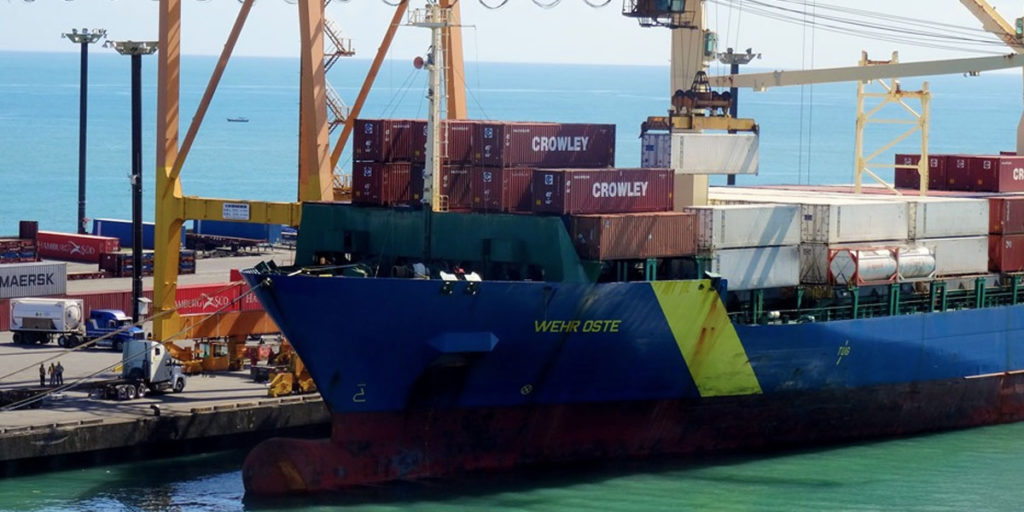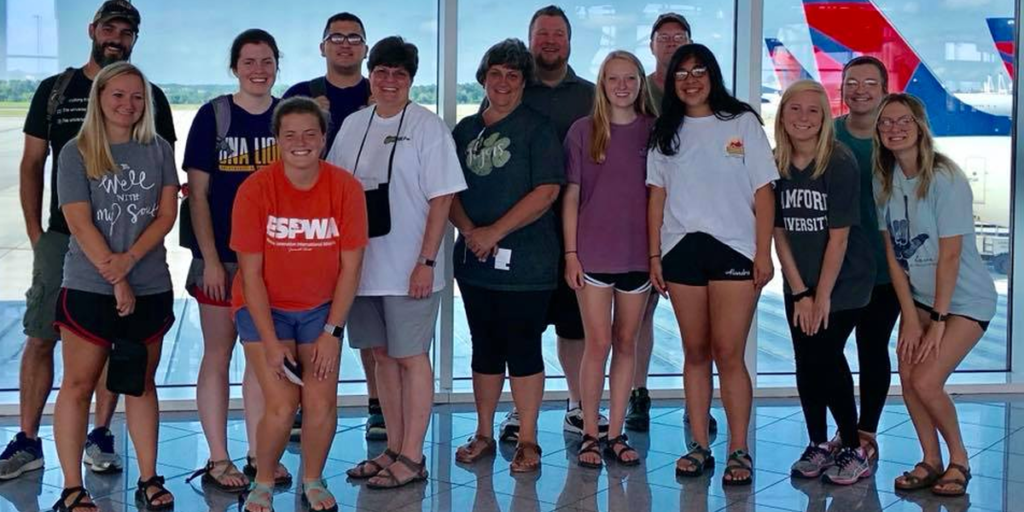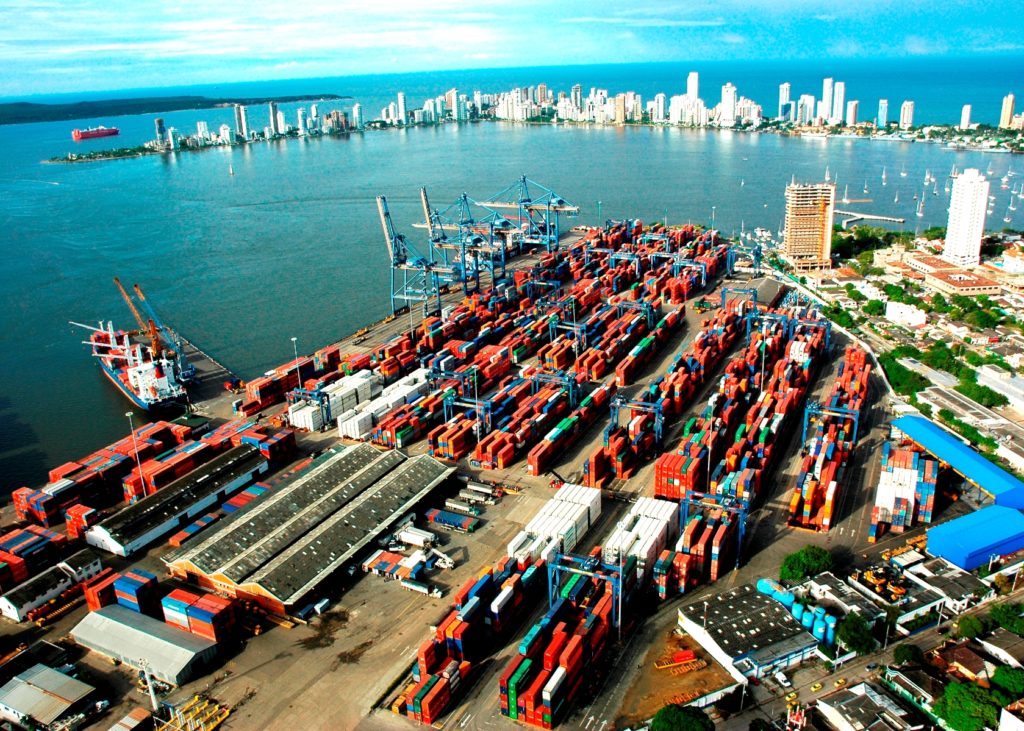Terri Sewell introduces bipartisan bill to bolster US-Caribbean trade

On Wednesday, Alabama 7th District U.S. Rep. Terri Sewell introduced a bill extending the Caribbean Basin Trade Partnership Act (CBTPA), which is currently set to expire in 2020, through 2030. Since it was established back in 2000, the CBTPA has allowed for the duty- and quota-free import of goods made with U.S. yarns, fabrics and threads from Caribbean countries. “Extending the U.S. Caribbean Basin Trade Partnership Act will expand the United States’ trade with Caribbean basin countries and increase our nation’s economic growth,” Sewell explained. “Improving trade with countries like Haiti and Jamaica by reauthorizing CBTPA encourages future investment, promotes job creation and lays the foundation for long-term economic development.” Sewell introduced the bill with her House colleague, Republican U.S. Rep. Brad Wenstrup. “Since its establishment nearly twenty years ago, the CBTPA has provided the dual benefit of expanding U.S. exports while stimulating job growth and economic development in these Caribbean nations,” added Wenstrup. “It is my pleasure to join Rep. Sewell in maintaining these critical trade partnerships by extending the CBPTA for another ten years.” CBTPA works in conjunction with the Caribbean Basin Economic Recovery Act (CBERA) to facilitate the development of 17 independent countries of the Caribbean Basin region. Sewell previously introduced this bill in 2017, but now with only one year until the CBTPA expires it’s causing uncertainty for various US retailers who source from the Caribbean, which is why she wants to extend the CBTPA until 2030. Eligible CBTPA countries include: Barbados, Belize, Curacao, Guyana, Haiti, Jamaica, St. Lucia, and Trinidad and Tobago.
Political unrest in Haiti leaves Alabama church group stranded

Volunteer groups from several American states have found themselves stranded in Haiti due to protests and political unrest on the small Caribbean island. Among those volunteers is a a team of 14 students and adults from First Baptist Church in Russellville, Ala. The church group found itself grounded after protesters took to the streets following a fuel price hike ordered by the government, which led to flights in the country being cancelled on Saturday and Sunday. CNN reported that a State Department Bureau of Consular Affairs official told American tourists and missions groups “do not attempt to travel at this time. Avoid protests and any large gathering of people. Do not attempt to drive through roadblocks.” Islanders, angered over their government’s attempts to raise fuel prices burned, looted and vandalized Haiti’s capital city Port-Au-Prince from Friday to Sunday. According to the Washington Post “several hundred people on Saturday attack a Best Western Premiere hotel in Petion-Ville, one of the capital’s wealthiest neighborhoods. Guests were forced to remain inside as rocks were hurled through windows around 10 a.m. local time. Security manned the building, but rioters shattered the main entrance before moving to another hotel.” But the Russellville group remains safe for now. They are currently scheduled to leave the island on Tuesday. “We have no reason to compromise our relative safety here at the guest house unless we’re certain we can get out of PAP,” the leader of the group posted on Facebook. “We are also working on alternative options, should the Tuesday flight not work for us. I’ll share those alternatives with you when they become more concrete.” You can follow the group’s progress here.
Terri Sewell introduces bipartisan Caribbean trade bill

Alabama 7th District U.S. Rep. Terri Sewell reached across the aisle this week to join Florida 26th District Rep. Carlos Curbelo to introduce a bill that would give duty and quota-free access to apparel products manufactured in certain Caribbean countries. H.R. 3849: the Caribbean Basin Economic Recovery Act would reauthorize the U.S. Caribbean Basin Trade Partnership Act (CBTPA) until 2030. Since 2000, CBTPA has allowed for the duty- and quota-free import of goods from Caribbean countries. In return, CBTPA requires that Caribbean Basin countries use U.S. formed yarns, fabrics, and thread. Eligible CBTPA countries include Barbados, Belize, Curacao, Guyana, Haiti, Jamaica, St. Lucia, and Trinidad and Tobago. “This bipartisan legislation to promote U.S. trade with Caribbean island countries is needed as many islands begin to recover from the devastation of recent hurricanes,” said Sewell. “Economic growth in Alabama is one of my top priorities, and this bill represents a great opportunity to expand my home state’s trade with Caribbean basin countries.” Although the CBPTA doesn’t expire for three years, in 2020, it’s causing uncertainty for various US retailers who source from the Caribbean. Sewell’s bill would extend the bill until 2030. “Reauthorizing CBTPA until 2030 and improving trade with countries like Haiti encourages future investment, promotes job creation, and lays the foundation for economic development for decades to come,” Sewell explained. “Since coming to Congress, I’ve worked to build a stronger, more competitive U.S. economy and today’s bill takes a big step towards that goal.” CBTPA works in conjunction with the Caribbean Basin Economic Recovery Act (CBERA) to facilitate the development of 17 independent countries of the Caribbean Basin region. For these two preferential trade programs to be effective, both CBTPA and CBERA must be authorized. Eligible CBERA countries include Antigua and Barbuda, Aruba, the Bahamas, Barbados, Belize, the British Virgin Islands, Curacao, Dominica, Grenada, Guyana, Haiti, Jamaica, Montserrat, St. Kitts and Nevis, St. Lucia, St. Vincent and the Grenadines, and Trinidad and Tobago. As of Wednesday, the bill has been referred to the House Committee on Ways and Means.
After weekend wins, Hillary Clinton on cusp of Democratic nomination

Hillary Clinton stands on the cusp of having enough delegates to claim the Democratic presidential nomination, having overwhelmed Bernie Sanders in a pair of weekend elections in the Caribbean. Yet the former secretary of state barely noted her commanding wins Saturday in the U.S. Virgin Islands and Sunday in Puerto Rico, instead remaining focused on Tuesday’s contest in California and five other states — and a general election matchup to come against presumptive GOP nominee Donald Trump. “We’re going to have a very contentious campaign,” Clinton said late Sunday night at a rally in the California capital, “because I’m going to point out at every single moment that I can why I believe the Republican nominee should never get near the White House.” Urging voters to come out Tuesday, Clinton said she wants to “finish strong in California. It means the world to me.” After blowout weekend wins the two U.S. territories, Clinton is now 26 delegates short of the 2,383 needed to win the nomination, according to an Associated Press count. Clinton won all seven delegates available in the U.S. Virgin Islands and at least 33 of the 60 delegates available in Puerto Rico. She beat the Vermont senator there by roughly 61 percent to 39 percent. Clinton now has 1,809 pledged delegates won in primaries and caucuses; Sanders has 1,520. When including superdelegates, the party insiders who can vote for the candidate of their choice at the party’s summer convention, her lead over Sanders is substantial: 2,357 to 1,566. Though Clinton did not spend much time campaigning in Puerto Rico, the victory is fraught with symbolism for her campaign. Eight years ago, with the presidential nomination slipping from her grasp, she rolled through the streets of San Juan on the back of a flat-bed truck, wooing voters to a soundtrack of blasting Latin music. She beat then-Illinois Sen. Barack Obama with nearly 68 percent of the vote. “I’m for Hillary, girl,” said 83-year-old Candida Dones on Sunday as she cast her ballot. “I can’t wait for a female president. She’s one of us. She wears the pants. If we don’t look out for our own interests, who will?” Both Clinton and Sanders spent Sunday in California, the biggest prize among the six states voting on Tuesday. Sanders shook hands and stopped for photos during a stroll of more than an hour along the shops, restaurants and amusement park rides of the Santa Monica Pier. That included a stop at a charity “Pedal on the Pier” fundraiser, where Sanders told people riding on stationary bikes that the U.S. should have “an economy that works for all people, not just the one percent.” Like Clinton, Sanders made little mention of the outcome in Puerto Rico’s primary. He said during an evening rally in San Diego that Democratic leaders should take notice that the “energy and grassroots activism” that will be crucial to the party in the fall “is with us, not Hillary Clinton.” He pointed to polls showing him faring better than Clinton in head-to-head matchups with Trump and his strength among Democratic voters under the age of 45. “If the Democratic leadership wants a campaign that will not only retain the White House but regain the Senate and win governors’ chairs all across this country, we are that campaign,” he said. While those watching the results in Puerto Rico focused on their impact on the race for the Democratic nomination, the focus of many voters on the island was its ongoing economic crisis. Both Sanders and Clinton have pledged to help as the island’s government tries to restructure $70 billion worth of public debt that the governor has said is unpayable. “This is one of the most important political moments for Puerto Rico,” said Emanuel Rosado, a 29-year-old Clinton supporter. “I’m taking action as a result of the economic crisis.” Two weeks before the primary, Sanders criticized a rescue deal negotiated by U.S. House leaders and the Obama administration as having colonial overtones. In a letter to fellow Senate Democrats, Sanders said the House bill to create a federal control board and allow some restructuring of the territory’s $70 billion debt would make “a terrible situation even worse.” Clinton has said she has serious concerns about the board’s powers, but believes the legislation should move forward, or “too many Puerto Ricans will continue to suffer.” Among those voting Sunday was Democratic Party superdelegate Andres Lopez. He had remained uncommitted, but said Sunday he will support Clinton. “It is time to focus on squashing ‘El Trumpo,’” he said. Republished with permission of The Associated Press.


